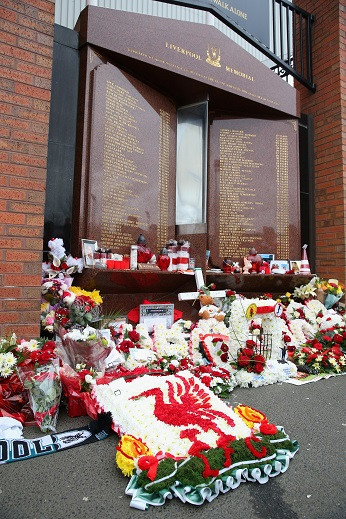Hillsborough inquest: Top officer David Duckenfield admits he 'wasn't best man' to police crowd

The senior police officer in charge of the Hillsborough disaster which left 96 people dead has said he "probably wasn't the best man for the job".
David Duckenfield, former chief superintendent for South Yorkshire Police, admitted that his "very limited experience" of policing football matches may have been an issue and that knowledge of the stadium would have been "beneficial".
Duckenfield was promoted to Hillsborough commander just three weeks before the FA Cup semi-final game which left 96 Liverpool fans dead on 15 April 1989.
The match between Liverpool and Nottingham Forest was the first time the officer had attempted to control the 54,000 sell-out crowd, with most of his policing experience being involved in criminal investigations.
Giving evidence for the first time at the new inquests into the tragedy, Duckenfield said in hindsight it was a "serious mistake" to accept a promotion to match commander.
The original verdict of accidental deaths was quashed following the publication of the Hillsborough Independent Panel report in 2012.
Duckenfield: "With hindsight, I should have thought about my limited knowledge of the role of a commander in a major event that was an all ticket sellout, when I had not been responsible.
It didn't cross my mind to say I'm not up to the job. I just got on with it
"After 25/26 years, and knowing what had happened, all I would say is this, after a period of, shall we say, I'm older, hopefully, wiser, probably I wasn't the best man for the job on the day.
"It did not cross my mind that the semi-final was something I couldn't deal with, with those very skilled people around me."
Duckenfield added he was assured that he would be able to "learn on the job" with the help of his experienced colleagues under the guidance from the former chief superintendent Brian Mole.
He added: "My knowledge of the ground wasn't an intimate knowledge, and in the short time available, it couldn't possibly be, but I hoped and believed and was assured that the team that had been specially selected for me by Mr Mole would provide the necessary expertise.
"There was a culture in the police service at that time. The culture was you would be moved without an overlap and you would learn on the job.
"It didn't cross my mind to say I'm not up to the job. I just got on with it.
"With hindsight it was a serious mistake. I did know what the job involved but no one, including me, knew what might evolve on the day and what difficulties we may face."
Duckenfield also admitted he didn't know the codeword for a declaring a major incident was "catastrophe", as laid out in the South Yorkshire Police Major Incident plan.

He added: "I'm not making excuses, and I'm not talking about people being inefficient, but there is absolutely no doubt whatsoever if you say, 'this is a major incident'.
"If you start saying a codeword, we have many codewords, and I should hate to think in crisis someone shouldn't know the codeword, but my way is 'This is a major incident' - full stop, which means the same, and is better."
Duckenfield's handling of the day of the disaster is set to come under scrutiny during the inquest. The jury previously heard it was his decision to open up an exit gate towards the tunnel which led out onto Leppings Lane terracing - where the fans were crushed behind the goal – prior to kick-off.
Former superintendent Roger Marshall, who was responsible for the Liverpool fans' section, was said to have asked Duckenfield three times to open the gate otherwise "somebody would be killed".
Believing it was too late to delay the 3.00pm kick-off, Duckenfield gave the order to open the gate, telling the control room: "If there is likely to be a serious injury or death I've no option but to open the gates. Open the gates."
The crush in the terraces occurred as thousands of fans made their way towards the pens via the central tunnel which was already packed with people.
After the match was finally abandoned at 3.15pm, former FA chief executive Graham Kelly questioned Duckenfield about what had occurred, to which he allegedly replied "the Liverpool fans have forced a gate."
The inquest continues.
© Copyright IBTimes 2025. All rights reserved.




















